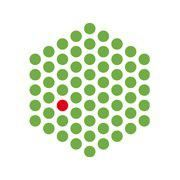 Mathematics of life: Modelling molecular mechanisms
Mathematics of life: Modelling molecular mechanisms
Date: 27 September - 1 October 2021
This course will provide participants with an introduction and hands-on training on modelling approaches, tools and resources used in systems biology as well as touch on network analysis.
Computer models are increasingly used to understand the essential processes of biology. Researchers in academic institutions as well as the pharmaceutical industry use mathematical models to generate hypotheses on how complex biomolecular systems work. Modelling of biochemical pathways deregulated in disease conditions can offer mechanistic insights into the pathology, help to elucidate mechanisms behind drug action, and predict the dose required for treatment thus facilitating fundamental research and drug discovery. This course will provide a helpful introduction to tools and resources used in this scientific field.
The course will involve participants learning via pre-recorded lectures, live presentations, trainer Q&A sessions and hands-on tutorials. The content will be delivered over Zoom, with additional text communication over Slack. In order to make the most out of the course, you should make sure to have a stable internet connection throughout the week.
Computational practicals will be run on EMBL-EBI's virtual training infrastructure; this means there is no need to have a powerful computer to run exercises or a requirement to install complex software before the course. Trainers will be available to provide support, answer questions, and further explain the analysis during these practicals.
Selected participants will be sent materials prior to the course. These might include pre-recorded talks and required reading that will be essential to fully understand the course.
Participants will need to be available between the hours of 09:30-17:15 BST each day of the course.
Keywords: BioModels database , IntAct Molecular Interaction Database , Systems (systems), Reactome Pathways Analysis
Target audience: This course is aimed at experimental biologists, bioinformaticians and mathematicians who have just started in systems biology, are familiar with the basic terminology in this field and who are now keen on gaining a better knowledge of systems biology modelling approaches to understand biological and biomedical problems. An experience of using a programming language (e.g Python, R, Matlab) would be a benefit but is not mandatory. An undergraduate knowledge of molecular and cellular biology or some background in mathematics is highly beneficial.
Capacity: 30
Activity log

 EMBL-EBI
EMBL-EBI
